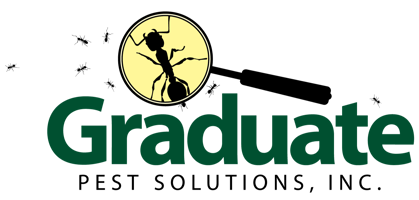A wasp sting is potentially one of the worst parts of summer. Here in Western Massachusetts and Northern Connecticut, we are entering wasp season. Most nests in Enfield, Connecticut; Springfield, Massachusetts; and surrounding areas are tennis to softball size with hive numbers growing exponentially! As wasps forage for protein foods (other insects or perhaps your picnic) chances of a close encounter of the “stinging” kind become much more likely. Here are some tips on how to avoid getting stung.
Repair Access Points
Stinging insects can infest your home by entering cracks in your foundation, chimney, siding, and windows. Simply doing annual fall inspections for entry points can make a big difference. Any void is a potential wasp nest! By sealing gaps, cracks, and crevices you deny access to your home for queen wasps looking to build a nest.
Seal Food When Outdoors
Picnics are prime food sources for yellowjackets. They eat proteins and sweets—common barbecue staples. The fix for this is simple: use air-tight containers and wrap food while it sits. This should minimize how much access yellowjackets have to your food and make them less likely to pester your picnic.
Use Odorless Deodorant
Many types of wasps are attracted to sweet smells. Whether is in deodorant or perfume, the scents can attract unwanted attention from insects. They can’t tell the difference between perfume and flowers and are agitated when it’s not the latter. Avoid wearing scented deodorants, especially florals.
Choose Your Outfit Wisely
Knowing that some wasps choose to build their nests in the ground means that footwear choice is important. Close-toed shoes can keep wasps from instinctively stinging your foot that has mistakenly trampled a nest opening. Flowery prints can be misleading for wasps searching for the real thing. Being mindful of what you’re wearing can save you the hassle of a yellowjacket buzzing your Hawaiian luau shirt.
Don’t Panic
Flailing and swatting can make wasps stinging you much more likely. It may be hard but try to remain calm. If you come across a nest, keep a safe distance, and refrain from agitating it until a professional can treat the nest. It’s strongly encouraged that you allow a professional to treat a nest, preferably when it’s small.
Learn how to spot the differences between these stinging insects with our visual guide to bee and wasp identification:
Download Our Guide to Stinging InsectsThe team at Graduate Pest Solutions can help you avoid wasp encounters. Call us at 413-566-8222 or contact us with any questions or if you are experiencing a pest problem. We have the knowledge and the services necessary to help keep your home pest-free!
YOU MAY ALSO LIKE
These related articles

